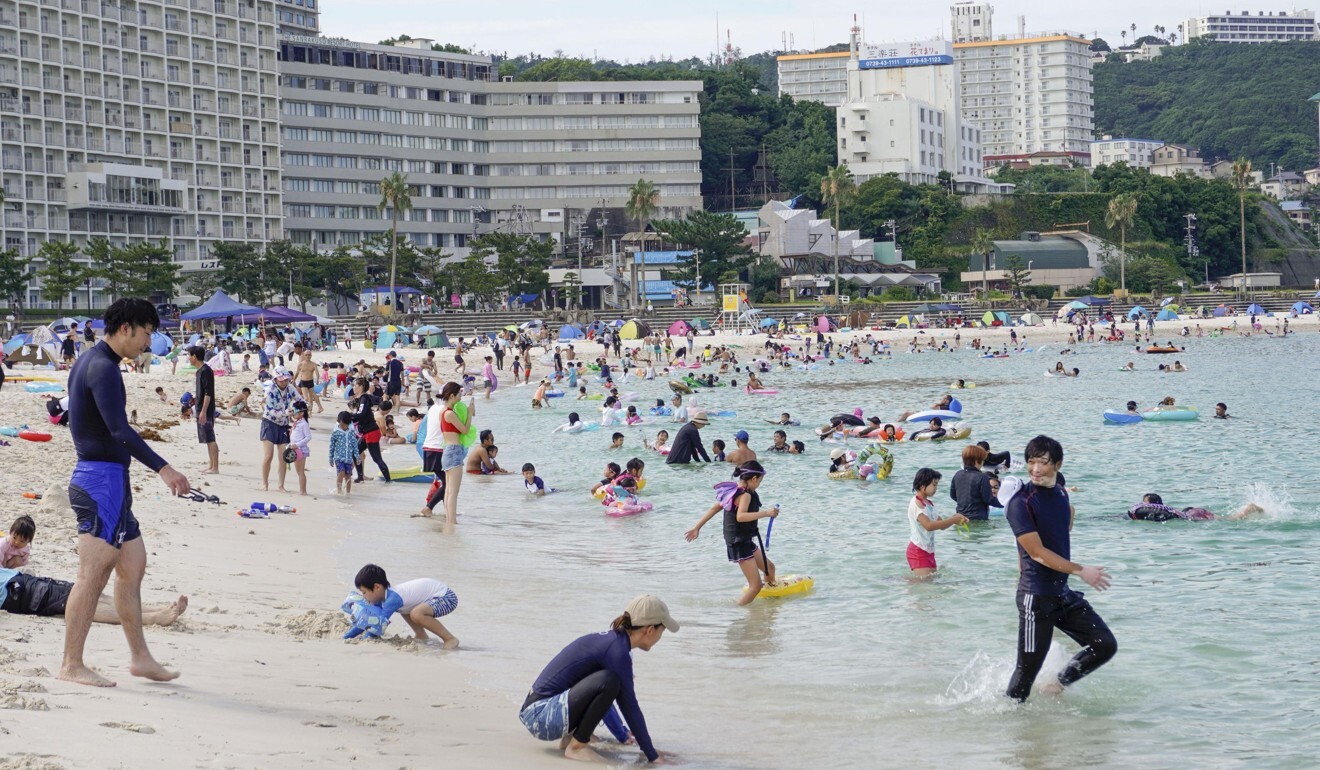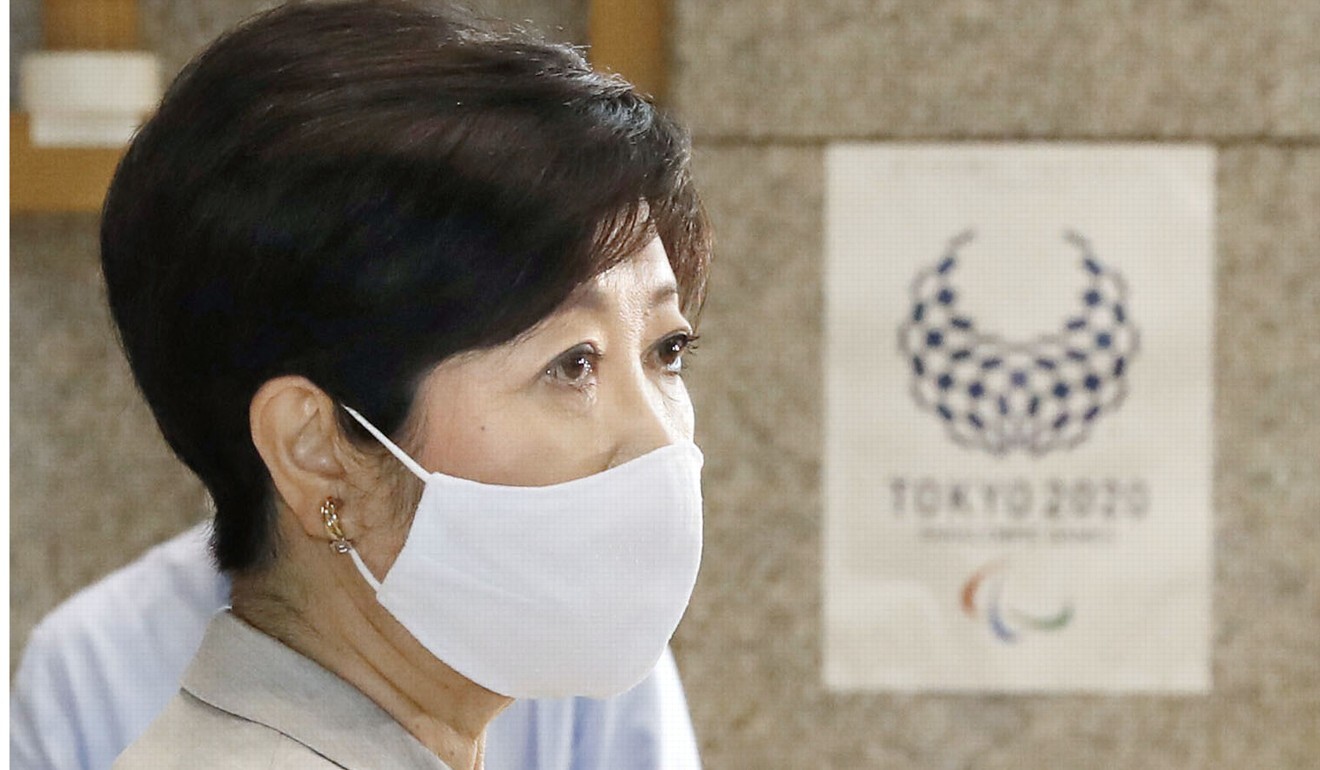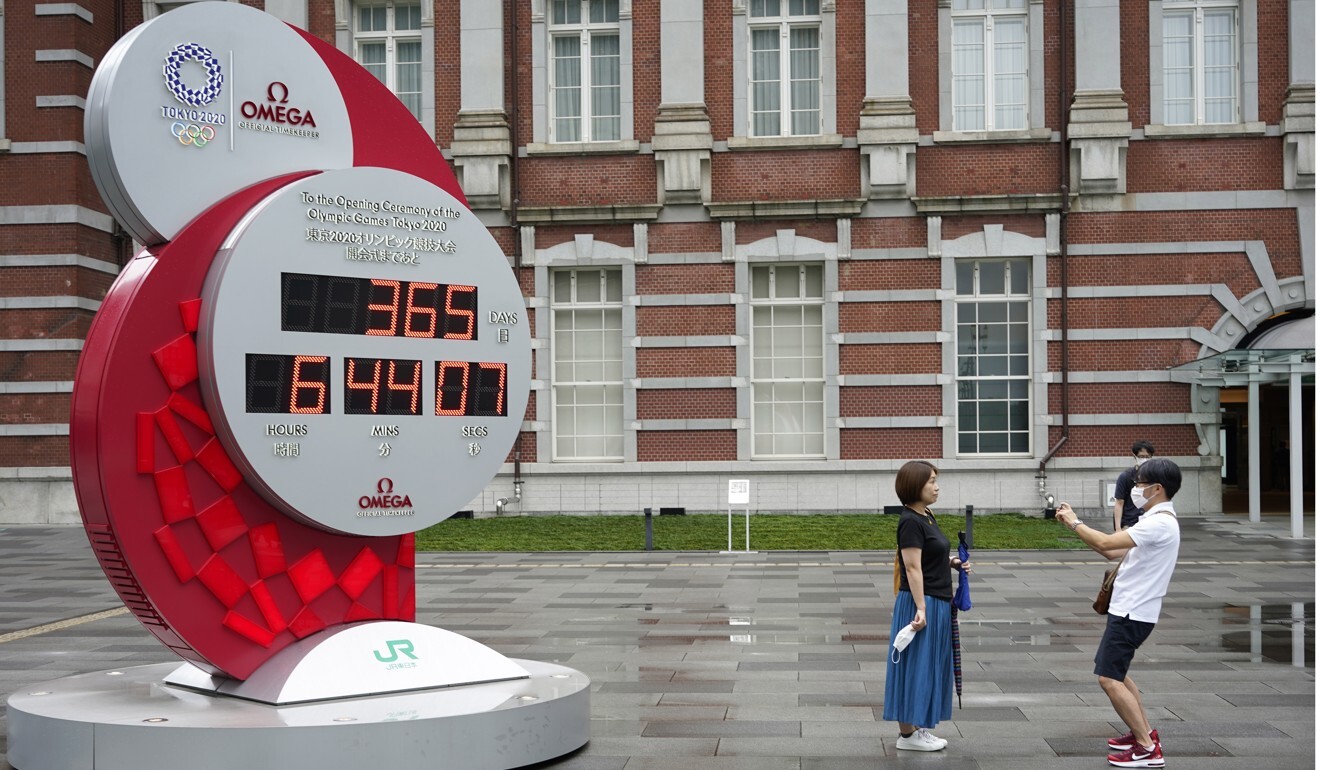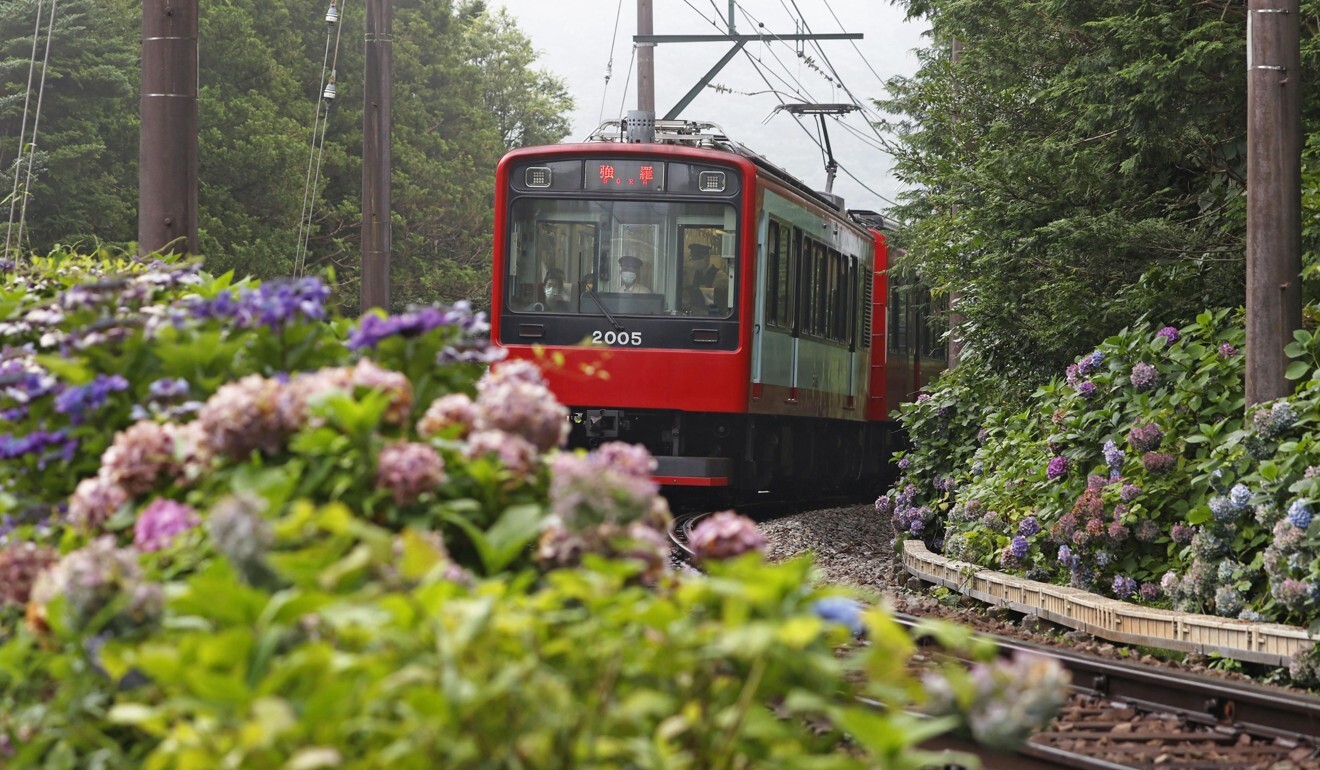
Japan reports record number of coronavirus cases at start of four-day weekend
- There were 830 new Covid-19 infections reported on Thursday, as Japanese set out on trips subsidised through the ‘Go To Travel’ campaign
- Tokyo, which saw 366 new cases, was excluded from the travel subsidy, with Governor Yuriko Koike advising against non-essential travel
The figure brings the nationwide tally to more than 28,700, including some 700 cases from the Diamond Princess, the cruise ship quarantined in Yokohama in February, with the death toll reaching 1,005.
Concerns over the worsening outbreak have grown stronger in Japan as a four-day holiday began on Thursday, the day after the government’s domestic travel subsidy campaign was launched.

On Wednesday, Japan reported 795 new daily virus infections, exceeding the previous single-day high set in April. On Thursday, the Tokyo metropolitan government confirmed a record 366 daily cases, surpassing the previous high of 293 cases confirmed last Friday and topping the 300 mark for the first time.
Tokyo has seen triple-digit single-day new infections on all but two days in July, with the capital’s cumulative coronavirus cases topping the 10,000 mark on Wednesday.
The capital and some other urban areas in Japan have seen sharp rises in confirmed cases since a nationwide state of emergency was fully lifted in late May.
“I’d like Tokyo residents to be cautious about virus infections and act carefully as a four-day holiday in the nation has already started,” Tokyo Governor Yuriko Koike told reporters.
She said the increasing number of virus cases reflects an increase in Tokyo’s testing capacity to nearly 5,000 tests a day from around 2,500 at the beginning of the month.

People in their 20s and 30s account for about 60 per cent of total infections in the city but Koike said the virus infections are spreading to those in their 40s and 50s.
The contagion is also spreading to the Tama district, western Tokyo, from the central area, she said. The daily figures announced by the metropolitan government reflect the most recent totals reported by health authorities and medical institutions in the capital.
Koike has urged residents to avoid non-essential outings during the four-day holiday after raising the pandemic alert to the highest of four available levels, indicating “infections are spreading”.
The government excluded Tokyo from the travel promotion campaign in a last-minute decision on concerns over the recent spike.
There has been a surge in the number of infections in the capital, particularly from nightlife establishments such as hostess and host bars, the metropolitan government has said.

Travellers were cautious in Japan on Thursday as they set out on excursions on the first day of the long weekend.
While Tokyo Station was busy with people dragging suitcases, shinkansen bullet trains saw vacancies in both their reserved and non-reserved seats.
“I decided to travel because I’m not sure until when I should be refraining from taking trips,” said Seiya Noro, 32, who was heading to Sendai, Miyagi Prefecture, from Kisarazu, Chiba Prefecture, to see his older brother.
Hakone in Kanagawa Prefecture, known for its hot springs, also fully reopened the Hakone Tozan Railway for the first time in nine months following the resumption of the part connecting Hakone-Yumoto and Gora. The line had been closed after a typhoon caused a landslide on the tracks last October.
“I’m happy to see many people riding the train,” said Masashi Kashiwada, 57, from Tokyo. Seeing the fallen trees and remnants of the disaster, Kashiwada said, “It made me realise just how serious the disaster was.”

At Tokyo Disneyland, another popular spot for holidaymakers, near Tokyo, Sakae Nagai, 56, was among the visitors. “I think people should enjoy going out while taking precautions,” Nagai said.
Ayano Nakayama, 30, came to visit Universal Studios Japan in Osaka Prefecture with her daughter on an overnight trip. “I’m worried, but the park has measures against the virus, so I’d like to have fun,” she said.
Travellers also gathered at popular hot spring resort Yufuin in Oita Prefecture, which was recently battered by torrential rainfall earlier in the month.
“I’m grateful that people are here because the number of customers plunged due to the heavy rain,” said souvenir shop owner Koei Hino, 42. “But I’m worried about the spread of the virus with so many people travelling during the long weekend.”
Under the 1.35 trillion yen (US$12.6 billion) “Go To Travel” campaign, the government will eventually subsidise up to half of travel expenses, including accommodation and transport fees. Initially, it will provide discounts worth 35 per cent of total costs. The remaining 15 per cent will be covered by coupons to be issued after September for food, shopping and other travel activities offered at destinations.
However, the tourism push was thrown into disarray recently when the government decided to remove trips to Tokyo and by its residents from the campaign. Tourism minister Kazuyoshi Akaba initially said the government had no plans to compensate for cancellation fees incurred by the decision but reversed the stance on Tuesday amid a public outcry.
The subsidy scheme was initially slated to begin in August before Japan’s summer holidays around the middle of the month, when many people living in major cities return to their hometowns. But it was moved forward in time for the current four-day weekend.

